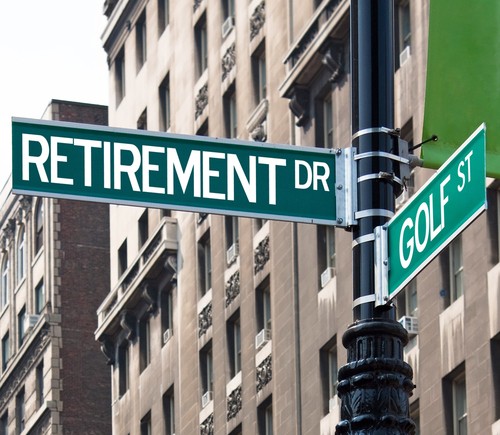If you still have three decades to go before you stop working, then it may be tempting to put off saving for retirement for a while yet, especially since you have so many other expenses in your life right now, like a mortgage payment, car payments, childcare expenses and college education funding for your kids. And how you save for retirement at this point will depend to some extent on how much you were able to save in your twenties. If you were fortunate (or disciplined) enough to pack away $20,000 or more into your retirement savings, then you may be able to get away with easing off on your retirement contributions for a while in order to concentrate on other things. But if you have not yet started to save for retirement, then now is the time to do so. However, saving money in IRAs and employer plans may not be all you can do to prepare for your nonworking years.
Start with Your Employer
If your employer offers a retirement plan of any kind like a 401(k) plan or 403(b) plan, then this is probably a good place to start your retirement plan if you haven’t already, especially if they offer any kind of matching contributions. Be sure to contribute to the Roth portion of the plan if this is available, because it will allow you to take tax-free distributions from your account at retirement (although any matching contributions will still be taxable because they can only be made on a pretax basis). Otherwise you should open a Roth IRA with a mutual fund company or investment firm that will allow you to invest in stocks or stock mutual funds (a much better alternative if you’re not a sophisticated investor). But your money needs to be growing faster than inflation over time, and equities and real estate are the only two asset classes that have consistently outpaced inflation over the decades. You may want to allocate a small portion of your portfolio into bonds or cash just for the sake of diversification, but your primary focus in your retirement savings at this point should still be growth.
Look at Your Debt
Retirees who don’t have to make a mortgage payment can live on a great deal less than those who do, especially if they have their mortgages completely paid off before they stop working. It may be wise to refinance to a 15 year mortgage, especially if interest rates are low, as this will save you thousands of dollars in interest payments that you can use instead to pay for education or retirement expenses. For example, if you refinance a $150,000 mortgage from a 30-year loan at 6% to a 15-year loan at 4%, then you have just saved yourself nearly $125,000 in interest over the full life of the loan (obviously, the amount saved will probably be somewhat less depending upon the amount of your mortgage that you have already paid off). If you can’t afford the payment for a shorter loan, consider refinancing for the same term and then do a biweekly mortgage, where you make 26 half-payments per year. This will shave about 8 years off of a 30-year note and about 3 ½ years off of a 15-year note. Those who do this now may even be able to pay off their home loans by the time their kids get to college. Retirement of other debt such as student loan payments and car loans can also be wise moves, because this will free up cash flow for you in the future with no investment risk. For more information on saving for retirement in your 30s, consult your financial advisor.
If you still have three decades to go before you stop working, then it may be tempting to put off saving for retirement for a while yet, especially since you have so many other expenses in your life right now, like a mortgage payment, car payments, childcare expenses and college education funding for your kids. And how you save for retirement at this point will depend to some extent on how much you were able to save in your twenties. If you were fortunate (or disciplined) enough to pack away $20,000 or more into your retirement savings, then you may be able to get away with easing off on your retirement contributions for a while in order to concentrate on other things. But if you have not yet started to save for retirement, then now is the time to do so. However, saving money in IRAs and employer plans may not be all you can do to prepare for your nonworking years.
Start with Your Employer
If your employer offers a retirement plan of any kind like a 401(k) plan or 403(b) plan, then this is probably a good place to start your retirement plan if you haven’t already, especially if they offer any kind of matching contributions. Be sure to contribute to the Roth portion of the plan if this is available, because it will allow you to take tax-free distributions from your account at retirement (although any matching contributions will still be taxable because they can only be made on a pretax basis). Otherwise you should open a Roth IRA with a mutual fund company or investment firm that will allow you to invest in stocks or stock mutual funds (a much better alternative if you’re not a sophisticated investor). But your money needs to be growing faster than inflation over time, and equities and real estate are the only two asset classes that have consistently outpaced inflation over the decades. You may want to allocate a small portion of your portfolio into bonds or cash just for the sake of diversification, but your primary focus in your retirement savings at this point should still be growth.
Look at Your Debt
Retirees who don’t have to make a mortgage payment can live on a great deal less than those who do, especially if they have their mortgages completely paid off before they stop working. It may be wise to refinance to a 15 year mortgage, especially if interest rates are low, as this will save you thousands of dollars in interest payments that you can use instead to pay for education or retirement expenses. For example, if you refinance a $150,000 mortgage from a 30-year loan at 6% to a 15-year loan at 4%, then you have just saved yourself nearly $125,000 in interest over the full life of the loan (obviously, the amount saved will probably be somewhat less depending upon the amount of your mortgage that you have already paid off). If you can’t afford the payment for a shorter loan, consider refinancing for the same term and then do a biweekly mortgage, where you make 26 half-payments per year. This will shave about 8 years off of a 30-year note and about 3 ½ years off of a 15-year note. Those who do this now may even be able to pay off their home loans by the time their kids get to college. Retirement of other debt such as student loan payments and car loans can also be wise moves, because this will free up cash flow for you in the future with no investment risk. For more information on saving for retirement in your 30s, consult your financial advisor.







